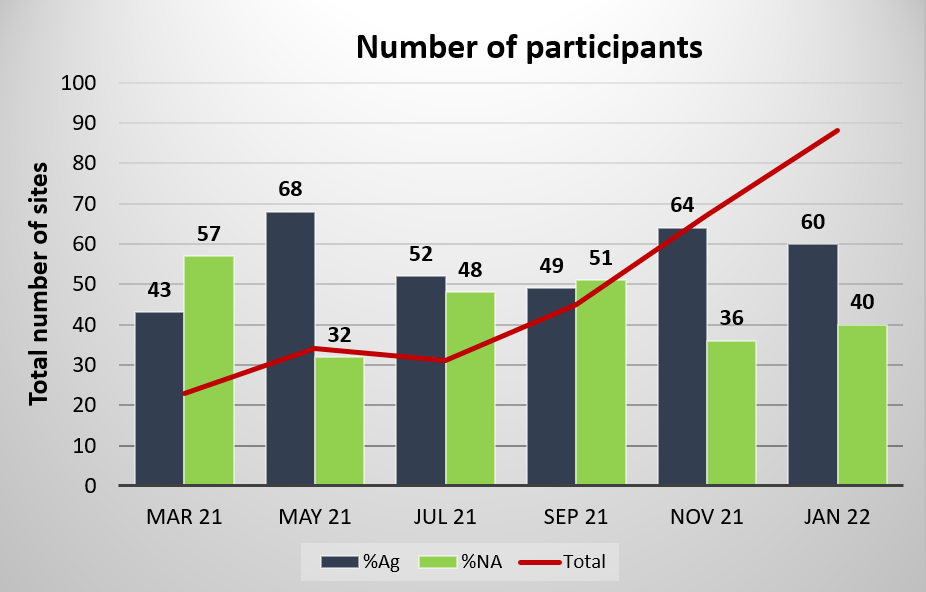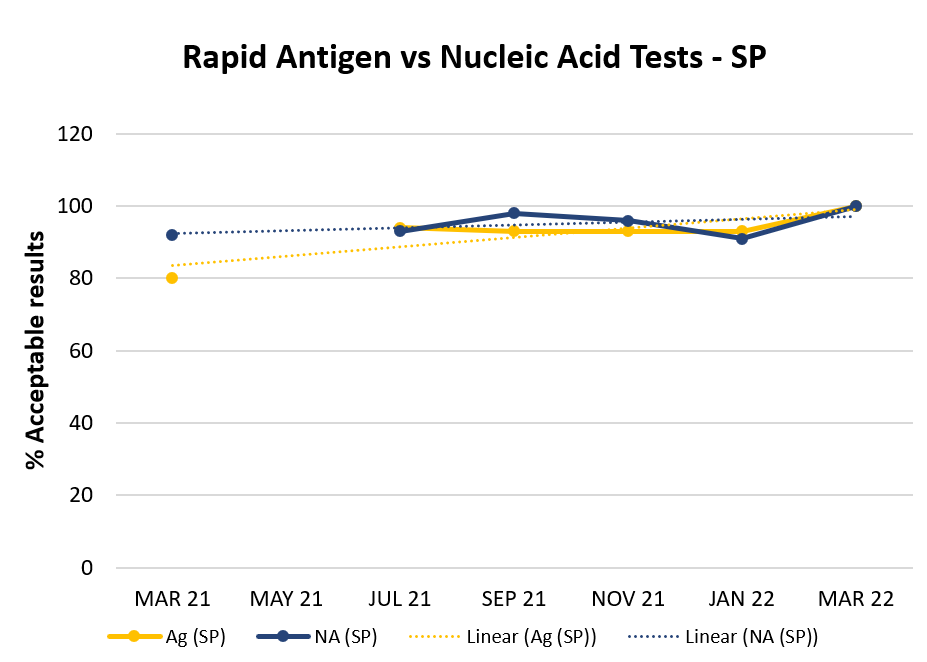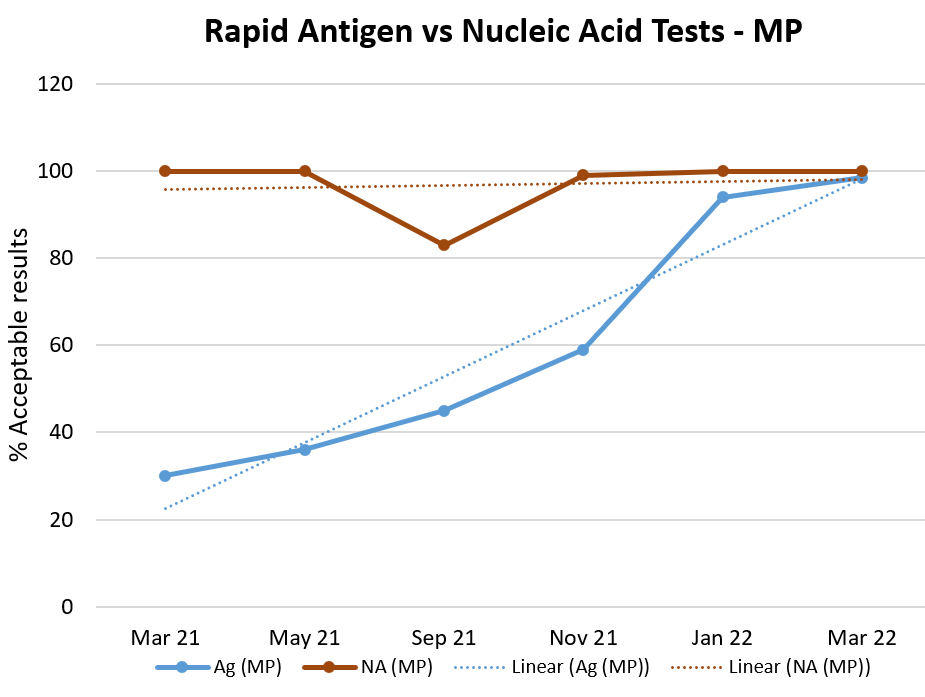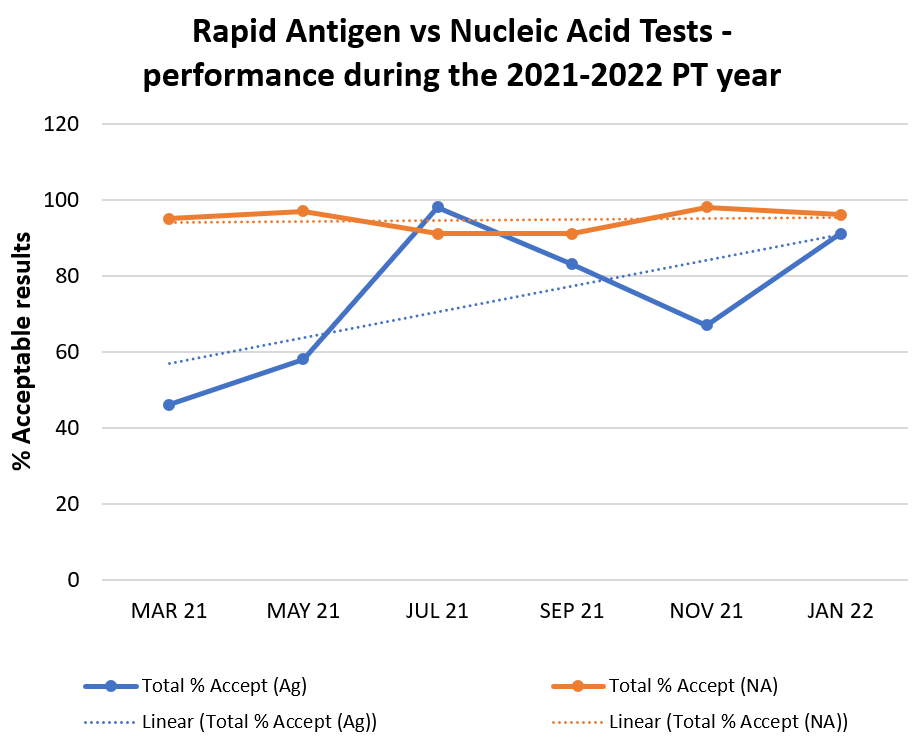
As testing for COVID-19 became more widespread during the pandemic, and rapid testing began to proliferate across the province, the College of Physicians and Surgeons of British Columbia Diagnostic Accreditation Program (DAP), required all testing sites - private and public - to be accredited as is currently required for all laboratory-based testing. Participating in an external quality assurance and proficiency testing (PT) program is one of the requirements for DAP accreditation. However, because of the emergent nature of the new virus and the newly approved diagnostic testing, a PT program for COVID-19 did not exist at the start of the pandemic.
Early in 2021, CMPT, in collaboration with BC Centre for Disease Control (BCCDC), created a brand new COVID-19 proficiency testing program geared to point of care (POC) testing sites administered within the different Health Authorities across British Columbia. Led by Mrs. Veronica Restelli, the annual PT program consists of 6 shipments each of a set of 4 samples that are either positive (strong and weak) or negative for SARS-COV-2 antigen and RNA.
We present here a year’s worth of experience and data
CMPT’s program started with mostly POC testing sites belonging to the different BC Health Authorities. As the testing demand grew for different industries and travel, we saw a steep increase in private laboratories joining the program during the year (Figure 1). The first shipment was sent to 23 sites on March 2021 and has grown to 100 sites as included in the most recent panel on January 2022.
Participants used both antigen and nucleic acid detection methods equally during the year, with an increasing trend towards the use of antigen tests towards the end of the PT year.

As presented in our Summer 2021 issue of Connections, CMPT adopted a plan to send samples with different concentrations of the viral material to better represent clinical samples. Two concentrations were chosen, the strongest being a 1:10 dilution of the material provided and the second being a 1:50 dilution (referred to as medium positive).
Consequentially, CMPT observed a large difference in the performance between nucleic acid and antigen detection methods, with the rapid antigen tests significantly lagging behind. CMPT investigated possible causes for this sensitivity difference between the two methods and we found that testing sites were having difficulty getting positive results with the medium positive samples (Figures 2 and 3).


The issue of low performance with the medium positive sample for sites testing using antigen-based kits was thoroughly investigated (see COVID-19 rapid antigen detection kits and CMPT PT samples in CMPT’s newsletter). Because one of the main issues found was problems with the training of those performing the assay, CMPT developed a training video specifically geared to the processing of CMPT’s PT samples. Overtime, POCT sites got better at detecting the medium positive sample (Figure 4) and thus, the performance of sites using antigen methods improved and reached almost the same percentage of acceptable results than those for the nucleic acid methods. We believe this was the result of gained experience and ongoing training efforts.

Overall, the COVID-19 PT program has been very successful and CMPT has been able to assist with the needs of several different client groups. Provincial testing requirements were, and continue to, rapidly shift while a multitude of different industries had to adapt to provide adequate testing options.
Entering now into our second year of this program, CMPT has played a key role in enabling both community-based POCT sites and laboratories to offer COVID-19 testing that is reliable and fit for purpose. With this program’s success and under the vision of CMPT staff and incoming CMPT chair Dr. Lucy A. Perrone, CMPT looks to expand its PT portfolio for virology to meet the growing need for quality assurance across the province. This August, CMPT welcomes virologist Dr. Selvarani Vimalanathan as the new Research and Development lead to help support CMPT’s 2022 program expansion.